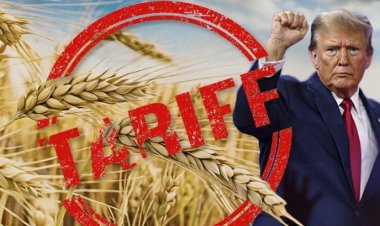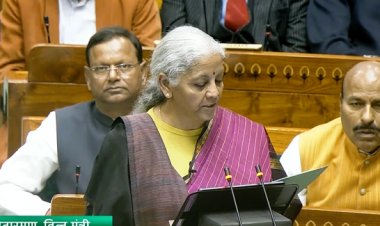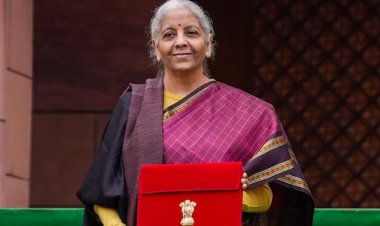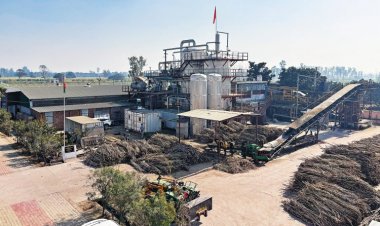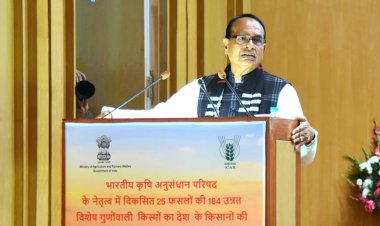Farmers have launched agitation against the Central government's decision to impose 40 per cent duty on onion exports to increase domestic availability and check prices. In the major wholesale mandis of Nashik district of Maharashtra, farmers on Monday stopped the auction of onions and started a strike. Onion wholesale traders also closed their shops in support of the farmers.
Farmer organisations say that this is completely an 'anti-farmer step' taken under compulsions of electoral politics. There was no need for it as of now because onion prices have not reached that level when such a step has to be taken. They have announced the decision to intensify the movement.
Onion is mainly exported from India to Bangladesh, Malaysia, UAE, Sri Lanka, Nepal, Indonesia, Qatar, Vietnam, Oman and Kuwait. The maximum export of Indian onions (more than 26%) is done to Bangladesh. In the current financial year 2023-24, from April 1 to August 4, 9.75 lakh tonnes of onions have been exported. According to government data, in the last financial year 2022-23, a total of about 23 lakh tonnes of onions were exported, which was worth about Rs 4,006 crore.
Main Importer country of Indian Onion in yr. 2022-23
|
Sr No.
|
Country
|
Qty (in MT)
|
Value (in Rs. Lacs
|
|
1
|
Bangladesh Pr
|
671,125.27
|
89,728.81
|
|
2
|
Malaysia
|
393,461.34
|
84,877.95
|
|
3
|
U Arab Emts
|
403,219.30
|
78,477.43
|
|
4
|
Sri Lanka Dsr
|
270,501.29
|
45,193.05
|
|
5
|
Nepal
|
174,764.16
|
26,771.43
|
|
6
|
Indonesia
|
116,695.71
|
22,184.63
|
|
7
|
Qatar
|
79,826.94
|
16,878.87
|
|
8
|
Vietnam Soc Rep
|
75,909.41
|
14,131.47
|
|
9
|
Oman
|
61,989.92
|
12,786.45
|
|
10
|
Kuwait
|
45,399.12
|
9,626.44
|
|
|
Total
|
2,292,892.46
|
400,656.53
|
source: APEDA
Describing this move of the government as anti-farmer, National President of Swabhimani Shetkari Sanghatana and former Lok Sabha MP Raju Shetty told Rural Voice, “The government has taken this step in view of the assembly elections to be held in five states in November-December. "The government is afraid that it may be difficult if onion prices increase during elections. In May-June this year, when onion prices came down to Rs 2-3 per kg and farmers were throwing their crops on roads and fields, where was the government, did it come to help them? "Before that, when the onion crop was destroyed due to unseasonal rains in February-March, did the government give compensation to the farmers? Then they were left to the mercy of the market. Now when the prices are rising and farmers could have benefited from it, then why is the government interfering in the market. The agitation started against this will be intensified and agitation will be held in entire Maharashtra."
Senior farmers' leader and former president of Shetkari Sangathan Anil Ghanwat told Rural Voice, “There was no need to take this step now as the retail price of onions has reached only Rs 30-35 per kg. Such a step could have been taken had the price crossed Rs 50 per kg. "The government has taken this decision in haste which is not in the interest of the farmers. The cost to the farmers is only Rs 18-20 per kg. If they do not get a fair price then how will they repay their loan. Banks have seized the lands of 62,000 onion farmers in Nashik district for not being able to repay the loans and they can auction them.”
Anil Ghanwat, a member of the committee formed by the Supreme Court on three controversial farm laws, says, “It is not just a matter of price, but also of India's credibility in the international market. Such sudden decisions of the government have reduced India's credibility in the export market. This is the reason that at one time India's share in onion exports was 40 per cent, which has now come down to just 8 per cent. "Small countries like Pakistan and Afghanistan have cornered our export market. Right now Bangladesh is our biggest onion importer, but in view of India's continuous decisions like this, it has set a target to become self-sufficient in onion production and is encouraging its farmers for this. Apart from this, Indian onion importers are turning to those countries which can supply them continuously without any hindrance."
When asked if the government's decision to procure additional 2 lakh tonnes of onions under buffer stock will benefit farmers, Ghanwat says it does not benefit farmers as government procurement agencies like Nafed and NCCF buy onions at market price. There is no Minimum Support Price (MSP) of onions. If government purchases are made at the same price as it is in the market, then how will the farmers benefit, he asked. But government agencies are definitely benefited because when the prices start increasing in the market, then the stock is issued at an increased price from the buffer. Raju Shetty also said that farmers will not benefit from government procurement.
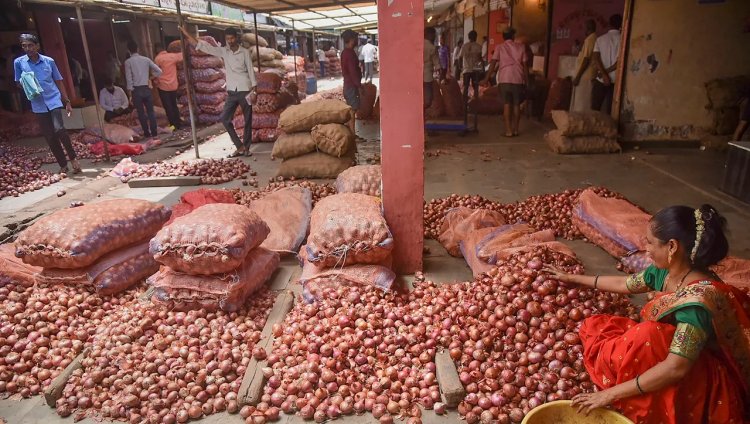



 Join the RuralVoice whatsapp group
Join the RuralVoice whatsapp group


















